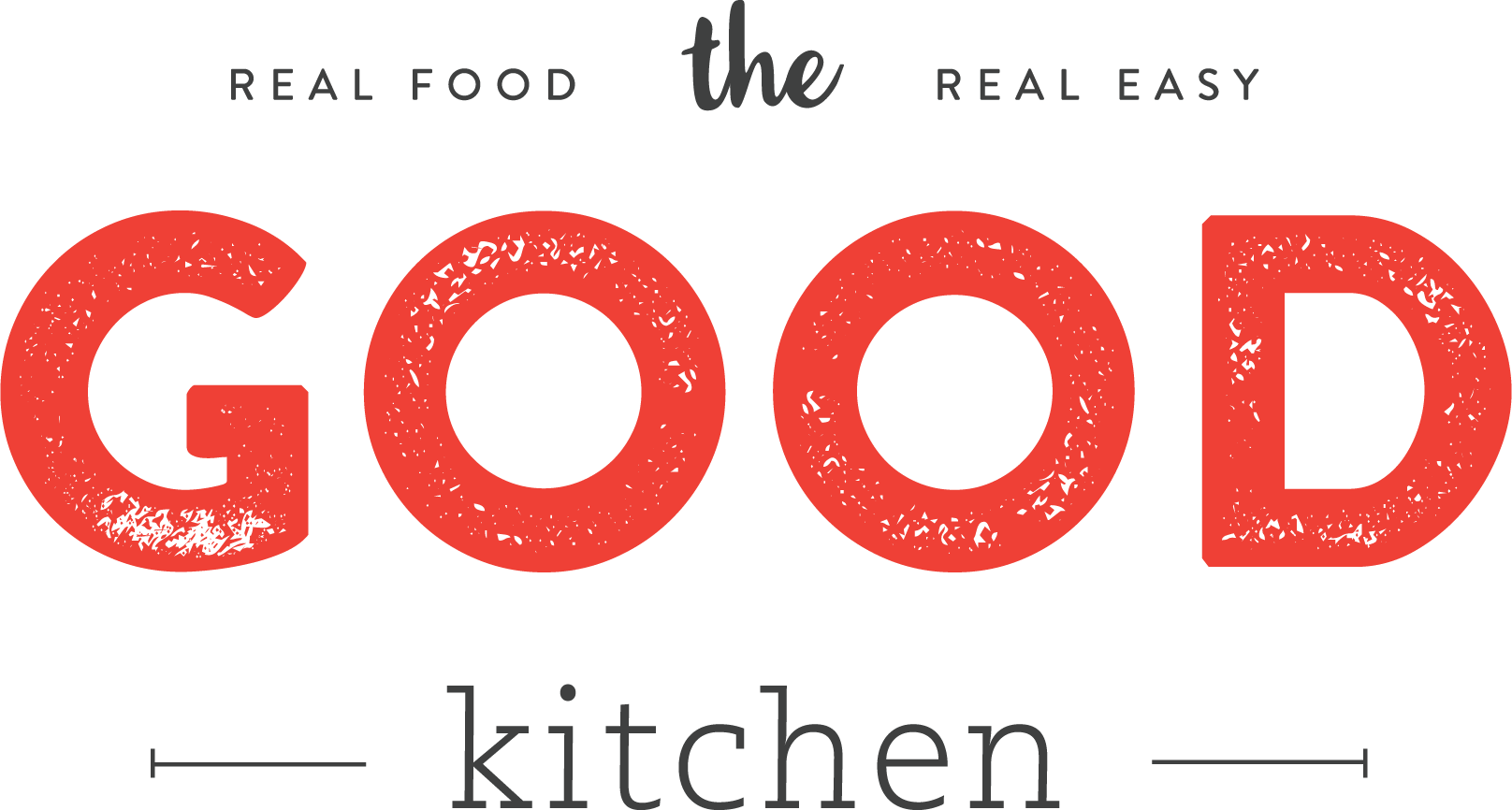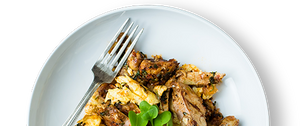What Are the Benefits of an Anti-Inflammatory Meal Plan?
If you don’t know what an anti-inflammatory meal plan is, read on! We discuss the benefits of this healthy diet that can reduce your risk of serious disease.

SPECIAL NOTE: As always, please consult with a medical professional before taking on a diet or food choice; we aren’t medical professionals here, just real people who enjoy real food.
If you or a loved one is following an anti-inflammatory diet, you will be aware of the need to find foods you can eat that are not only healthy but taste great, too.
Whether your doctor has recommended that you follow an anti-inflammatory meal plan because of a specific condition or you just want to reduce inflammation for your overall well-being, putting together healthy and appealing meals can be a challenge.
And if you’re new to anti-inflammatory eating, you may not know where to start. So, in this article, we’re going to find out more about anti-inflammatory diets and how they can help you live a healthier, more fulfilling life.
What Are Anti-Inflammatory Diets Good For?

Just as their name suggests, anti-inflammatory diets are good for reducing inflammation in the body.
Your doctor may have advised you to follow one if you have been diagnosed with a disease associated with chronic inflammation — for example, irritable bowel syndrome or rheumatoid arthritis.
You may also wish to follow an anti-inflammatory diet if you have a sensitivity to certain foods that cause gut or other issues.
Anti-inflammatory diets are also suitable for improving your general health. Inflammation is a natural process and has a role in healing your body. But, when it becomes chronic, it can trigger a number of serious diseases, including heart disease, Alzheimer’s disease, cancer, and depression. Reducing it is the key to sustained good health.
Should I Follow an Anti-Inflammatory Diet?
As we’ve seen above, if your doctor has recommended that you follow an anti-inflammatory diet to help your health condition, that’s a great reason to start.
But anyone can follow an anti-inflammatory diet to improve their general health. There are no side effects, and you’ll be getting all the nutrients you need and reducing inflammation as well!
Does an Anti-Inflammatory Diet Work?
Many scientific studies have shown anti-inflammatory diets to work when it comes to reducing inflammation.
A study followed 30 people with pre-diabetes or diabetes on an anti-inflammatory diet for six weeks; after this time, their inflammation markers were reduced. Researchers concluded that diet can have a marked effect on the amount of inflammation in your body.
Perhaps one of the most apparent indications that your anti-inflammatory diet is working is the changes you notice in yourself. These may include:
- Less pain or swelling in your body
- Clearer skin
- Fewer headaches
- Reduction in gut symptoms like bloating and stomach cramps
- More energy
- Improved sleep
- Weight loss
- Lower blood sugar
- Lower blood pressure
What Is the Fastest Way to Get Rid of Inflammation in the Body?

One of the fastest and most natural ways to get rid of inflammation in your body is to make changes to your diet.
Start by increasing your water intake. Dehydration will mean that your body simply isn’t functioning at its best and can leave you vulnerable to inflammation.
Introduce efficient anti-inflammatory foods into your daily diet. Try these quick fixes:
- Include a side salad with every main meal.
- Add turmeric and garlic to your cooking whenever possible.
- Eat salmon or other oily fish at least twice a week.
- Add honey and banana to your breakfast oatmeal.
- Have a glass of lemon water as your first drink of the day.
- Finish each meal with a soothing cup of green tea.
What Are the 5 Classic Signs of Inflammation?
While every individual may show different signs of inflammation, the following are considered the five classic indicators:
- Skin issues — redness, puffiness, rashes
- Swelling in hands and feet
- Bloating
- Fatigue
- Gut issues
How Long Does It Take to See Benefits from an Anti-Inflammatory Diet?
As a general rule, you can expect to see results from a few weeks to six months after starting an anti-inflammatory meal plan.
You may see quicker results if you had a strong reaction to a food that you have now eliminated from your diet.
What Can I Drink for Inflammation?
You’ll be pleased to learn that certain drinks have anti-inflammatory properties that you can include as part of your healthy diet.
Green tea is renowned for its anti-inflammatory qualities, so try a cup of green tea after your meals. This is a great time to drink it, as it also aids digestion.
Red wine is another drink with anti-inflammatory properties, thanks to its antioxidants. Be sure to keep within the recommended guidelines for alcohol consumption, so that’s up to one drink a day for women and up to two drinks a day for men. Know that five ounces of wine is equivalent to one drink.
You can also drink as much water as you like, as this will aid hydration and reduce inflammation naturally.
Is Oatmeal Inflammatory or Anti-Inflammatory?

Pure oats can be safely incorporated into your anti-inflammatory meal plan. Eat them for breakfast with fruit for a healthy start to the day.
However, oats may be contaminated with gluten if they are processed in the same facility and so may be inflammatory for some people. Be sure to check the packaging and choose gluten-free oats.
Is Meat an Inflammatory Food?
Some meat is considered an inflammatory food and some is not. Red meat is inflammatory — processed meats like hot dogs and sausages in particular.
But you can safely include lean, white meat like chicken into your anti-inflammatory meal plan.
How Can I Tell if My Body Has Inflammation?
We’ve already identified the five classic signs of inflammation: skin issues, swelling in the hands and feet, bloating, fatigue, and problems with your gut.
If you are affected by inflammation, you may also notice that you gain weight easily, experience aching joints and muscles or headaches and are more susceptible to colds and flu.
Do Probiotics Help with Inflammation?
Yes, probiotics do help reduce inflammation. There is plenty of scientific evidence to back this up. One recent study reviewed a total of 38 articles looking at this very topic and found that taking probiotics reduced inflammation and improved symptoms in patients who were suffering from conditions like Crohn’s disease and ulcerative colitis.
What’s more, it concluded that probiotics are safe to take and well-tolerated for most patients.
What’s the Easiest Way to Follow an Anti-Inflammatory Meal Plan?
It’s amazing to think that just by changing your diet, you can quickly reduce inflammation in your body and lead a healthier life with a lower risk of serious diseases.
The challenge is to devise an anti-inflammatory meal plan yourself if this is something you are not familiar with.
This is where The Good Kitchen comes in. We do the hard work by creating and preparing tasty meals according to your unique needs, including an anti-inflammatory diet. All you need to do is heat up your meal and enjoy it, safe in the knowledge that it’s as nutritious as it is tasty!
Get started by filling out our questionnaire so we can know a little more about you and how often you’d like your meals delivered. We’ll offer some suggested meals, which you can easily switch up if they don’t appeal. Then register an account with us, and we’ll do the rest! A delicious anti-inflammatory meal plan will be on its way to you so you can start enjoying your new healthy lifestyle without delay!
Photos by engin akyurt, Sanjay Dosajh and Jocelyn Morales on Unsplash






